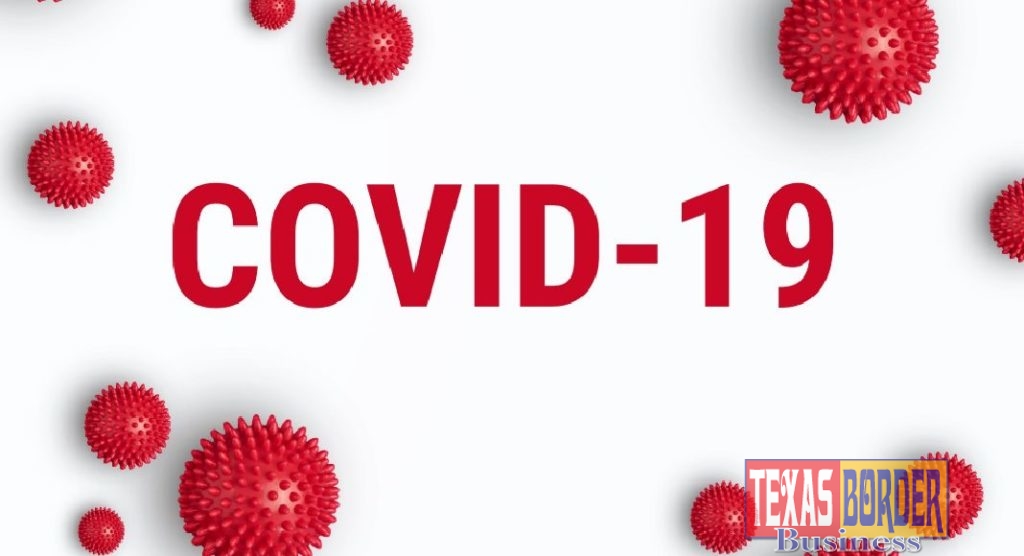
Texas Border Business
Along with other federal, state, and local agencies and public health officials across the country, the FDA continues critical work to protect public health during the COVID-19 pandemic.
The frequently asked questions (FAQs) on this page are for a general public or consumer audience. Other audiences may want to refer to additional FAQs:
- Hand sanitizers and COVID-19 FAQs
- Diagnostic Testing for SARS-CoV-2 FAQs
- Medical glove FAQs
- Surgical mask and gown shortage FAQs
- 3D Printing of Medical Devices & Parts FAQs
- FAQs on Ventilators
- Manufacturing, Supply Chain, and Drug Inspections FAQs
- Food Safety and COVID-19 FAQs for Industry
- Animal Food Safety and COVID-19 Industry FAQs
- Face Mask and Surgical Mask FAQs
General Information
Q: What is coronavirus disease 2019 (COVID-19)?
Q: What is the FDA doing to respond to the COVID-19 pandemic?
Q: What is an emergency use authorization and how is it being used to respond to COVID-19?
Q: How does COVID-19 spread?
Q: How can I prevent COVID-19?
Q: Should I wear a face covering or face mask when I go out in public?
Q: What treatments are available for COVID-19?
Q: Can I prevent or treat COVID-19 by using disinfectant sprays, wipes, or liquids on my skin? Can I inject, inhale, or ingest (swallow) disinfectants to prevent or treat COVID-19?
Q: Does spraying people with disinfectant lower the spread of COVID-19?
Q: Will Miracle Mineral Solution (MMS) cure COVID-19?
Q. Is hand sanitizer effective against COVID-19?
Q. Where can I buy hand sanitizer? If I can’t find it in the store, can I make my own?
Q. What do I do if I get a rash or other reaction to hand sanitizer?
Q: What is the risk of using a hand sanitizer that contains methanol (wood alcohol)?
Q: What should I do with hand sanitizer that contains methanol (wood alcohol)?
Q: What should people do that have been exposed to hand sanitizer with potential methanol contamination?
Q: Products online claim to prevent or treat COVID-19. Where can I report websites selling fraudulent medical products?
Q: Am I at risk for serious complications from COVID-19 if I smoke cigarettes?
Q: If I vape tobacco or nicotine am I at risk for complications from COVID-19?
Vaccines, Biologics, Human Tissues, and Blood Products
Q: What is the FDA’s role in approving vaccines and what is being done to produce a COVID-19 vaccine?
A: The FDA regulates vaccines. Vaccines undergo a rigorous review of laboratory and clinical data to ensure the safety and effectiveness of these products. Vaccines approved for marketing may also be required to undergo additional studies to further evaluate the vaccine and often to address specific questions about the vaccine’s safety, effectiveness, or possible side effects.
There are currently no vaccines available for the prevention of COVID-19. The FDA is expediting clinical trials for vaccines by providing timely advice to and interactions with vaccine developers. The FDA is also supporting product development and scaling up of manufacturing capacity for high priority vaccines for COVID-19. Vaccine developers can find more info about the review process here.
Q: What is a biological medical product or a biologic?
Q: Are there any vaccines or other medical products to prevent COVID-19?
Q: Does COVID-19 present a risk to the safety of the nation’s blood supply?
Q: Can SARS-CoV-2, the virus that causes COVID-19, be transmitted by blood transfusion?
Q: What steps are being taken to protect the U.S. blood supply from SARS-CoV-2, the virus that causes COVID-19?
Q: Why aren’t blood centers testing donors for SARS-CoV-2?
Q: Is it safe for me to donate blood during the coronavirus pandemic?
Q: Can COVID-19 be transmitted through human cells, tissues, or cellular and tissue-based products (HCT/Ps)?
Q: What is convalescent plasma and why is it being investigated to treat COVID-19?
Q: I recently recovered from COVID-19, can I donate convalescent plasma?
Drugs (Medicines)
Q: What does it mean to be an FDA-approved drug?
A: FDA approval of a drug means that the agency has determined, based on substantial evidence, that the drug is effective for its intended use, and that the benefits of the drug outweigh its risks when used according to the product’s approved labeling. The drug approval process takes place within a structured framework that includes collecting clinical data and submitting an application to the FDA. Learn more about the FDA’s Drug Review Process.
Q: What is the FDA’s role in regulating potential treatments during a public health emergency?
Q: Are there any FDA-approved drugs (medicines) for COVID-19?
Q. Is remdesivir approved by the FDA to treat COVID-19?
Q. Are there data showing remdesivir might benefit patients with COVID-19?
Q. How can remdesivir be obtained for use under the EUA?
Q: Are chloroquine phosphate or hydroxychloroquine sulfate approved by the FDA to treat COVID-19?
Q. Should I take chloroquine phosphate used to treat disease in aquarium fish to prevent or treat COVID-19?
Q: Are antibiotics effective in preventing or treating COVID-19?
Q: Should I take ivermectin to prevent or treat COVID-19?
Q: What is the FDA doing to protect people from fraudulent COVID-19 products?
Q: Will there be drug shortages due to COVID-19?
Q: Am I at risk for COVID-19 from taking FDA-approved drugs made outside the United States?
Q: Who should I contact with drug-related questions?
Medical Devices Including Tests for COVID-19
Q: Is there a test for COVID-19?
A: Yes, the FDA has authorized two different types of tests (diagnostic and antibody tests) for use during the COVID-19 emergency. Though there are currently no FDA-approved or cleared tests for COVID-19, the FDA has issued over 100 Emergency Use Authorizations (EUAs) for such tests . These EUAs allow the emergency use of tests during the COVID-19 emergency when the FDA determines certain criteria are met. These criteria include that the test may be effective at diagnosing or detecting antibodies to COVID-19 and that the known and potential benefits outweigh the known and potential risks. Read more about COVID-19 tests.
Q. How are people tested for COVID-19?
Q: Are there any tests that I can purchase to test myself at home for COVID-19?
Q: When will other diagnostic tests for COVID-19 be authorized?
Q: What is the difference between the types of tests available for SARS-CoV-2?
Q: Should I purchase personal protective equipment such as facemasks or N95 respirators for me and my family?
Q: Is there a shortage of personal protective equipment (PPE) such as gloves, masks, and N95 respirators or of ventilators?
Q. Can 3D printing be used to make PPE?
Q. I built a DIY ventilator using instructions I found on the internet. May I sell it?
Q: Who should I contact if I have questions about medical devices or need more information?
Food Products
Q: What is the FDA’s role in helping to ensure the safety of the human and animal food supply?
A: To protect public health, the FDA monitors domestic firms and the foods that they produce. The FDA also monitors imported products and foreign firms exporting to the United States. The FDA protects consumers from unsafe foods through research and methods development; inspection and sampling; and regulatory and legal action.
Q: Will there be food shortages?
Q. Why is the FDA providing flexibility to food manufacturers, under limited circumstances during the COVID-19 public health emergency, to make minor changes in ingredients without reflecting those changes on the package label?
Q. What do I need to know about the temporary policy for food labeling of minor ingredient changes during the COVID-19 public health emergency if I have food allergies?
Q: Will there be animal food shortages?
Q: What are the most important things I need to know to keep myself and others safe when I go to the grocery store during the pandemic?
Q: Are food products produced in the United States or other countries affected by COVID-19 a risk for the spread of COVID-19?
Q: Can I get the coronavirus from food, food packaging, or food containers and preparation area?
Q: Is the U.S. food supply safe?
Q: Is the U.S. animal food supply safe?
Q: Can I get COVID-19 from a food worker handling my food?
Q: Should food workers who are ill stay home?
Q: Should food facilities (grocery stores, manufacturing facilities, restaurants, etc.) perform any special cleaning or sanitation procedures for COVID-19?
Q: What is the FDA doing to respond to foodborne illnesses during the COVID-19 pandemic?
Animals, Pets and Animal Drug Products
Q: What is the FDA’s role in regulating animal drugs, animal food (including pet food), and animal medical devices?
A: The FDA approves and regulates animal drugs to ensure they are safe and effective. In addition, the FDA helps ensure that animal food (including pet food) is safe and truthfully labeled. The FDA has post-market authority over veterinary medical devices.












